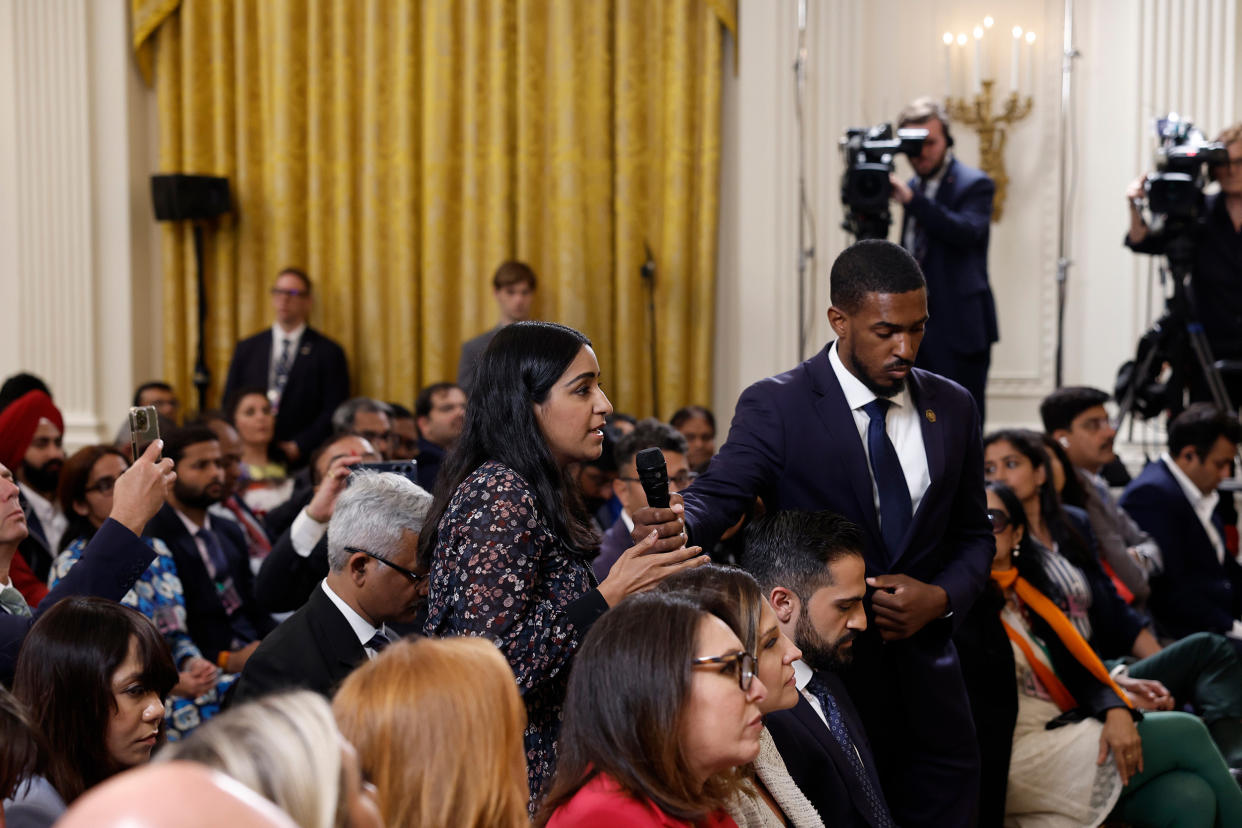White House blasts harassment of reporter who asked Modi about human rights record
Biden administration officials on Monday blasted an online harassment campaign targeting a Wall Street Journal reporter who asked Indian Prime Minister Narendra Modi about his government's human rights record during a White House press conference last week.
"It’s completely unacceptable and it's antithetical to the very principles of democracy that ... were on display last week during the state visit," National Security Council spokesman John Kirby said of the online vitriol that's been aimed at White House reporter Sabrina Siddiqui.
White House press secretary Karine Jean-Pierre later added that "we're committed to the freedom of the press" and "condemn any efforts of intimidation or harassment of a journalist."

During a press conference with President Joe Biden and Modi at the White House on Thursday, Siddiqui said "there are many human rights groups who say your government has discriminated against religious minorities and sought to silence its critics," and asked "what steps are you and your government willing to take to improve the rights of Muslims and other minorities in your country and uphold free speech."
Modi, who rarely takes questions from reporters, said at the time that he was "surprised" by the question.
“In India’s democratic values, there is absolutely no discrimination, neither on basis of caste, creed, or age or any kind of geographic location,” Modi said through a translator in response to Siddiqui.
“Indeed, India is a democracy. And as President Biden also mentioned, India and America both countries, democracy is in our DNA. The democracy is our spirit. Democracy runs in our veins. We live democracy,” he added.
Before becoming prime minister, Modi was banned from the U.S. for the role he allegedly played in the 2002 Gujarat riots, in which 1,000 people, most of them Muslims, were killed. Since taking office in 2014, he's faced criticism for aspects of his human rights record, including censoring journalists and stripping autonomy from the region of Kashmir.
Following her exchange with Modi, Siddiqui has been the target of online abuse, mainly from the prime minister's allies in India.
The Wall Street Journal responded to the attacks in a statement Monday calling Siddiqui “a respected journalist known for her integrity and unbiased reporting. This harassment of our reporter is unacceptable, and we strongly condemn it.”
The South Asian Journalists Association also defended Siddiqui. "We want to express our continued support of our colleague @SabrinaSiddiqui who, like many South Asian and female journalists, is experiencing harassment for simply doing her job," the group said on Twitter.
